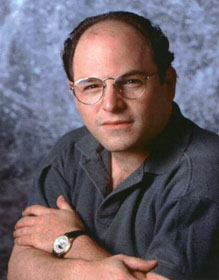I've been thinking about the age old problem of personhood. An intuitive place to start is that which we do not share with animals. That is, characteristics that are not just sophisticated extensions of animal traits, like intelligence, creativity and humour. Possibly language
as a phenomena falls into this catagory, since its animal counterpart is communication in the form of sqwarks and growls. Jeremy and I were discussing this topic, and he thinks there's an awful lot we share with animals, much more than we think. I think I agree, that the apex of humaness is really the only defining quality of personhood.
I think this takes us to consciousness (do animals have this? Who knows? Is there any way to find out that does not beg the question?) and more narrowly to a kind of agency or the Greek concept of
nous (Aristotle's definition, sans the passive part). This is something we can only observe internally, and so our guess that animals don't have
nous is as good as our guess that
other humans have
nous. For the moment, let's just assume that this is a good guess.
Nous must be more narrowly defined then mind. This is because there's a lot in our minds that we seem to have no control over; images induced by suggestion, the inability to redesign the house in a daydream and certain habits of thinking that we fall into that psychiatrists try to cure us of. I've just described the view of our mind from the inside, as if it is stuff just like our bodies are stuff. Yet
nous is distinct from our minds when we describe it naturalistically, as I've just done.
Nous is "control central" that is the apex of personhood, but is only best described by negation. It is the ultimate non-natural, it exists over and above the natural, it gives meaning.
On the other hand, why must personhood be limited to pure agency and spontenaity (in Kant's sense)? Why can't we have a nebulous defintion of personhood? Indeed, on such a narrow defintion, large parts of humanity seem to be excluded from personhood. The mentally handicapped, unborn babies, and possible all humans up to the age where one starts to control even their own thoughts, and this can happen quite late; up to the age of 21 and beyond!
But then again, perhaps
nous is helpful to catagorically define personhood. Perhaps its true that the types of humans excluded from personhood do not manifest what we think
nous should manifest. But this probably misses the point. The whole idea of
nous is that its not a natural phenomena to be observed in humans. It is a ruling aspect of the world. So, we can include all humans as persons because, catagorically, the only place (apart from God) where
nous is to be found is in humans. Of course, I don't really like the phrasing there, as "to be found" still implies a naturalness to
nous.
However, a catagorical definition starts to smell circular. Perhaps we should try an entirely different tack and define personhood from the outside, arms, legs...no that doesn't work. Or simply throw it in the "I can't define it, but I know it when I see it" basket, which is getting really full, what with Time, Language and Beauty already in there.
And it's a pretty important question, and fully deserving of seemingly nit-picking discussion; we can't go around in life taking for granted ethical questions.















